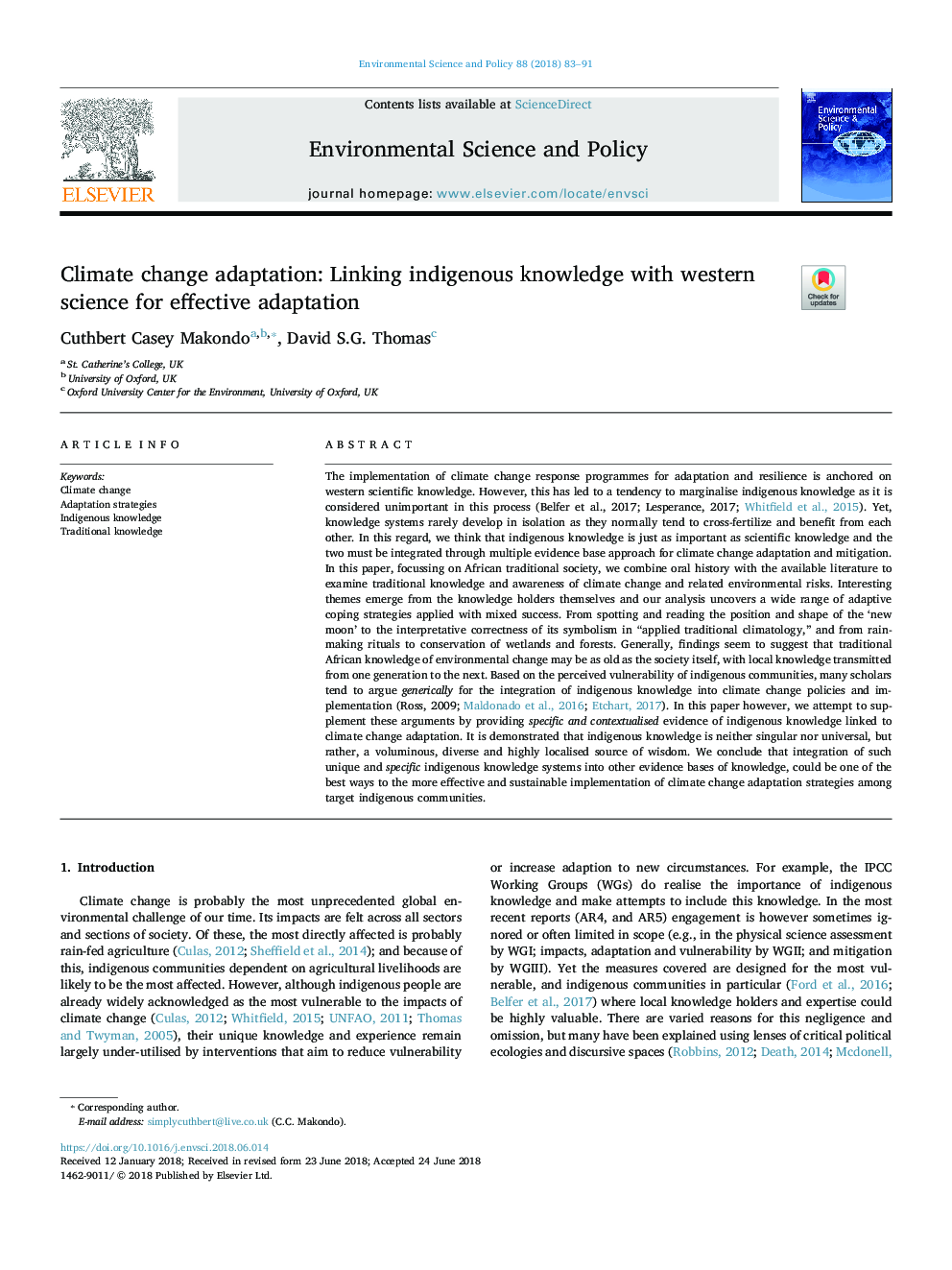| کد مقاله | کد نشریه | سال انتشار | مقاله انگلیسی | نسخه تمام متن |
|---|---|---|---|---|
| 7465769 | 1485020 | 2018 | 9 صفحه PDF | دانلود رایگان |
عنوان انگلیسی مقاله ISI
Climate change adaptation: Linking indigenous knowledge with western science for effective adaptation
ترجمه فارسی عنوان
سازگاری تغییرات اقلیمی: پیوند دانش بومی با علوم غربی برای سازگاری موثر
دانلود مقاله + سفارش ترجمه
دانلود مقاله ISI انگلیسی
رایگان برای ایرانیان
کلمات کلیدی
تغییر آب و هوا، استراتژی های سازگاری، دانش بومی، دانش سنتی،
موضوعات مرتبط
مهندسی و علوم پایه
مهندسی انرژی
انرژی های تجدید پذیر، توسعه پایدار و محیط زیست
چکیده انگلیسی
The implementation of climate change response programmes for adaptation and resilience is anchored on western scientific knowledge. However, this has led to a tendency to marginalise indigenous knowledge as it is considered unimportant in this process (Belfer et al., 2017; Lesperance, 2017; Whitfield et al., 2015). Yet, knowledge systems rarely develop in isolation as they normally tend to cross-fertilize and benefit from each other. In this regard, we think that indigenous knowledge is just as important as scientific knowledge and the two must be integrated through multiple evidence base approach for climate change adaptation and mitigation. In this paper, focussing on African traditional society, we combine oral history with the available literature to examine traditional knowledge and awareness of climate change and related environmental risks. Interesting themes emerge from the knowledge holders themselves and our analysis uncovers a wide range of adaptive coping strategies applied with mixed success. From spotting and reading the position and shape of the 'new moon' to the interpretative correctness of its symbolism in “applied traditional climatology,” and from rain-making rituals to conservation of wetlands and forests. Generally, findings seem to suggest that traditional African knowledge of environmental change may be as old as the society itself, with local knowledge transmitted from one generation to the next. Based on the perceived vulnerability of indigenous communities, many scholars tend to argue generically for the integration of indigenous knowledge into climate change policies and implementation (Ross, 2009; Maldonado et al., 2016; Etchart, 2017). In this paper however, we attempt to supplement these arguments by providing specific and contextualised evidence of indigenous knowledge linked to climate change adaptation. It is demonstrated that indigenous knowledge is neither singular nor universal, but rather, a voluminous, diverse and highly localised source of wisdom. We conclude that integration of such unique and specific indigenous knowledge systems into other evidence bases of knowledge, could be one of the best ways to the more effective and sustainable implementation of climate change adaptation strategies among target indigenous communities.
ناشر
Database: Elsevier - ScienceDirect (ساینس دایرکت)
Journal: Environmental Science & Policy - Volume 88, October 2018, Pages 83-91
Journal: Environmental Science & Policy - Volume 88, October 2018, Pages 83-91
نویسندگان
Cuthbert Casey Makondo, David S.G. Thomas,
